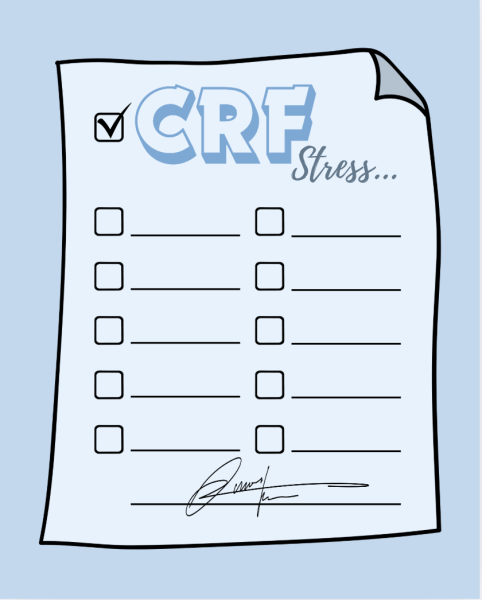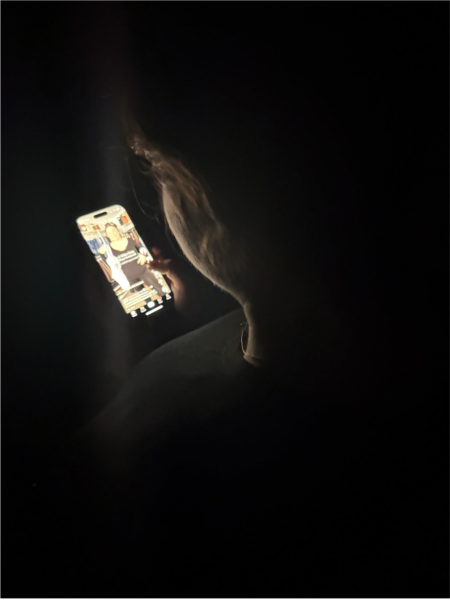Outcry over 13 Reasons Why
Hannah used cassette tapes to record her messages before she died.
Arlington Public Schools (APS) sent an email to parents on Friday, April 21 cautioning the viewing of the popular Netflix series 13 Reasons Why. The email mentions that critics who have said the show “romanticizes or glamorizes suicide but gives no healthy alternative to kids struggling with emotional problems.” It also encouraged parents to talk with their children about what they are watching. “We [shared] information about the series with parents to raise awareness among adults who may not have been aware of the series and/or its content,” Assistant Superintendent Linda Erdos said.
Students within Washington-Lee and other Arlington schools were confused and even upset by the release of this APS email. Some students feel that the show raises awareness for suicide and other mental health related issues and took the words “although we do not encourage viewing” from the email as a discouraging and negative critique towards the show and its content. “I feel like they shouldn’t have sent the email because the show reflected how someone’s actions can affect somebody,” freshman Arantxa Bonifaz Rosas said. “It shows how little actions can add up and can ruin someone’s life. [13 Reasons Why is a] warning for students to be cautious about what they say and what they do.”
However, other students, parents and teachers feel it is necessary to caution families and their children of the nature of the show. Many parents were appreciative of the email and believed that it sparked positive conversation about important topics like suicide and mental health between them and their children. “I was thinking of receiving the email as a parent and not just from the counselor’s side,” school counselor Ms. Kristin Devaney said. “Being a counselor, I wasn’t aware that my child and her friends [had] watched the show, so it kind of helped me talk to my child from a different perspective.”
Parents have also reported back to the APS school board, attributing the conversations with their children about the show to the email from APS. A large number of parents were completely unaware of the show, specifically the show’s effects on their children. “We figured students probably knew about [the show] or heard about it, but many parents [had] not. In fact we heard from parents saying they hadn’t heard about it,” Ms. Erdos said. “One parent I talked to said it made her go home and say, “do you know about this?” and the student said yes. They started talking about suicide and bullying, and what would cause it, and what they would do. That’s all we wanted, is for families to have a good healthy conversation.”
The show was released to Netflix on March 31. The series is an adaptation of the book of the same name by Jay Asher, which was #1 on the New York Times best-seller list in July 2011. The show revolves around teen Hannah Baker’s suicide, and the 13 cassette tapes she left behind that explain why she took her own life. Each episode contains a tape, targeting one specific person: somebody who she blames for her death. “I think that one of the controversial topics is that they glamorized suicide in the show, and it’s because Hannah was able to have her voice heard after she died,” Ms. Devaney said. “ She was able to show people how they did impact her with the bullying and the other things that were going on in her life. So that’s the glamorization piece. It’s the permanence of death that is not really portrayed in the show.”
Several other critics, including mental health experts, teachers and parents have raised concern that the show may portray suicide and mental health in an unhealthy way. Trained professionals and psychologists mentioned that 13 Reasons Why never discussed the possible mental disorders that Hannah may have had leading up to her death, a common factor in suicides. “The show didn’t talk about mental health and depression,” Ms. Devaney said. “It showed lots of causes as to why this young girl was feeling the way she did, and [it showed] suicidal thoughts and causes, but it didn’t talk about that underlying mental health depression component that is so huge and something that we talk about in health curriculum.”
After the large amounts of attention that the new show received, particularly from mental health experts, Netflix released a statement saying the company would add an additional viewer warning card before the first episode. Within the statement they said they “strengthened the messaging and resource language in the existing cards for episodes that contain graphic subject matter, including the URL 13ReasonsWhy.info.” The website provides support for those dealing with the topics spotlighted in the show. The APS email also included ways for parents and students to seek help through provided school programs. “APS resources related to suicide prevention are available through the In Crisis/Need Help Now button under “Quicklinks” on the APS main webpage,” the email said. “We want to remind families that all of our APS school counselors, school psychologists and social workers are available whenever you have questions or concerns.”
There have been reports in the U.S. of increased numbers of students, even in elementary schools, threatening to harm themselves after the show’s release. Schools have made efforts to make their students feel safe and to keep them healthy but worry that the show’s depiction of counselors being unhelpful may cause issues. The show includes a school counselor who explicitly tells Hannah to “move on” and does practically nothing to help Hannah when she goes to him for guidance. “I was actually texting Ms. Devaney this weekend when I was watching the final episode and I was upset,” school counselor Nicole Wiley said. “As counselors, we are trained that if a student mentions that they want to hurt themselves, if they’re thinking about suicide or if they’ve been assaulted, then we have to take action and the counselor [from the show] did not.”
The counselors at this school want to be sure that students and their families understand that under no circumstances would they react to a student the way the counselor did in 13 Reasons Why. They strongly encourage students who do feel suicidal or who need help to reach out to them and are disappointed that the show gave counselors such a misleading reputation. “That’s just not typical, that’s not what I would say 99.9 percent of the time happens with a counselor. I think [the counselor from the show] was poorly trained, and I did not like that that’s what happened,” Ms.Wiley said. “He didn’t address her when she mentioned thoughts of suicide [or] when she mentioned being sexually assaulted. I don’t think she necessarily said, ‘I was sexually assaulted,’ but she strongly alluded to that and the fact that he did not address those things was very upsetting to me because I don’t want students to think that’s our reaction when students bring up things.”
Counselors participated in a webinar after the show with the American School Counselors Association (ASCA) where they received documents from the National Association of School Psychologists (NASP) and the American Foundation for Suicide Prevention (AFSP). These documents included tips for counselors, families and their students on how to discuss suicide and how to handle the situations that have come to light since the show’s release. Counselors at the school have made an increased effort to ensure that the students and their families have the resources they need. ”We hope [the counselor from the show] wouldn’t discourage anyone in a difficult position,” Ms. Devaney said. [We don’t want people] to see something like that and see that would be common practice because it isn’t at all.”
Arlington County works to make sure that bullying and the various other factors that led to Hannah Baker’s suicide in the show never happen to any of their students. However, the county has resources available in the event that those things do occur. “[APS faculty] really wants the counselors to be well trained, and part of the mission statement of the county is that they don’t tolerate bullying,” Ms.Wiley said. “Of course bullying will still happen, but I do think that Arlington is trying very hard to make sure that our students are educated and that we are constantly being reminded that we have to protect you guys and be aware of bullying and things going on.”
Despite an outpour of worry 13 Reasons Why was enjoyed by many, and some even deemed it educational. The show received an 8.5 five out of 10 from IMDb, a four out of five from the parental review website Common Sense Media and an 85 percent from the movie and TV show review website Rotten Tomatoes. “I think there were some aspects of it that were educational. I mean one of them being suicide awareness,” Ms. Devaney said. “If somebody talks about [suicide], you listen. That’s not something that you take lightly. It’s nobody’s decision or determination if that person is not being serious. I think some other educational components could be the discussion about the mental health and the depression topic.”
The show continues to receive criticism everyday. However, at the end of it all, it is up to students and their families to decide whether or not to view the show. “I think it was good that [APS] let parents know: ‘Hey, this is out there. This might upset your child or this might bring up a lot of different emotions, so as Arlington Public Schools we want you to know that lots of kids are watching it, and if they do watch it, have conversations [or] if you don’t want them to watch it because you’re afraid it might upset them,’” Ms. Wiley said. “I think it was good that they at least addressed that.”
Finally the school’s counselors want to reiterate that they are available to help and that their purpose is to be there for their students regardless of what the show may have implied. “If any student is ever concerned about a friend or themselves, please get help, please talk to somebody. Don’t be afraid they’re going to be mad at you if you tell [an adult], because I’d much rather have a friend that’s upset than a friend that has hurt themselves,” Ms.Wiley said. “These counselors are so great, I love working here, and I know how caring they all are. We are all here for you guys if you need anything. If Hannah had been my student, I would’ve encouraged her [to] please talk to me, [to] let me know what [was] going on. I would’ve definitely called her parents, and I would’ve definitely sought to get her help. I would’ve encouraged her to tell somebody.”












